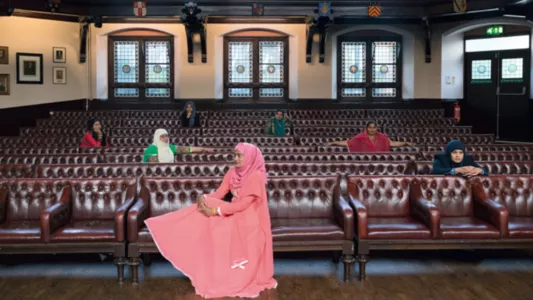Whenever I make work, I almost always have a set of references that come out of either the history of art or film.
Ever since its invention back in the 19th century, photography has been documenting life. At the same time, it focuses on inviting audiences to a rather subjective world, while trying to be taken seriously as an art form. Photography has always been considered a male-dominated profession, but luckily things are changing. Scholars, writers, bloggers, photography students, and enthusiasts have been giving due to the female pioneers of the field. Most of them were always standing and/or hiding in the shadows, oblivious to how much they could acclaim and accomplish. Arguably, the techniques, concepts, and thematic female photographers use differ from those of male photographers. At a time when most women were convinced that their place was in the kitchen and certainly not in the dark room, some were struggling to surpass their male counterparts and work towards gaining respect and recognition for their work.

Melanie Manchot (German visual artist and photographer, 1966-) was born in a small German city and studied in New York at New York University. She then moved to London to continue her studies at City University (MA in Arts and Education) and later at the Royal College of Art (MFA in Photography).
From 1992 until 2005 Manchot worked as a lecturer at various institutions including Goldsmiths College of Art, Central St. Martins, London College of Communication, and Middlesex University. She first came to prominence in the mid-to-late nineties for an early series of portraits taken entirely of her mother whom she photographed naked. When first exhibited these works Manchot received widespread attention and contributed to a growing debate around the representation of women, age, and contested notions of body politics.
Since 2000 her practice has increasingly incorporated film and video installation with the frame of reference expanding to include archive film, experimental film, and cinematic history. The artist's methodology is based on participatory processes, often involving groups or communities and creating expanded portraits of people, both their individual and social selves.
Manchot's work has been widely exhibited in galleries, museums, and film festivals internationally. Notable solo exhibitions include Celebration (Cyprus Street), Whitechapel Gallery, London, Portland Institute for Contemporary Art, Oregon, Moscow Girls und Andere Geschichten, Haus am Waldsee, Berlin, Melanie Manchot, Cornerhouse, Manchester and Stories from Russia, The Photographers' Gallery, London. Manchot has also exhibited extensively in group shows around the world at institutes such as MOTinternational, London; Centre for Contemporary Arts, Glasgow, Moscow Museum of Modern Art, Istanbul Biennal and the New Forest Pavilion, 52nd International Art Exhibition, Venice Biennale.
Melanie is a trustee of The Photographers' Gallery in London. She is also on the editorial board of numerous art journals. In 2020, she was awarded an Honorary Fellowship of the Royal Photographic Society, Bristol. Manchot employs photography, film, video, and sound to form a sustained inquiry into how we negotiate and construct our individual and collective identities. Her recurring methodologies include performance-to-camera, reconstruction, and participation as well as location-based research. Her work investigates particular gestures and forms of movement or activities that become the markers of a group or community.

I think both photography and film do not speak the truth. It is always, inevitably, an interpretation. I also find this whole notion of truth really complicated. I think it is highly debatable that any artistic representation pertains to the idea of truth.

We will continue talking about female names that left their mark on photography and about contemporary female photographers who are still to emerge. There are a lot of female photographers out there deserving of praise and we can only hope to cover as many of them as we can. Please follow this space to find out more.







